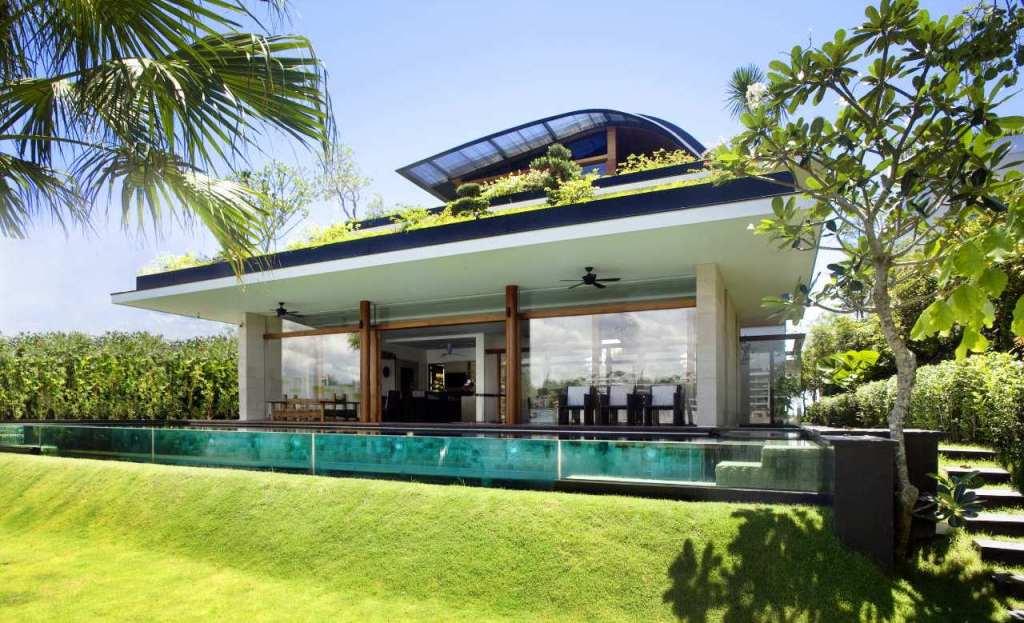 In a world where sustainable living is increasingly becoming a priority, the real estate sector stands at the forefront of change. The quest for greener, more efficient homes has ushered in an era of innovation, where technology plays a pivotal role in reshaping residential landscapes.
In a world where sustainable living is increasingly becoming a priority, the real estate sector stands at the forefront of change. The quest for greener, more efficient homes has ushered in an era of innovation, where technology plays a pivotal role in reshaping residential landscapes.
In this context, Mr. Karan Sharma, Director at Ambit Realtors and Developers, has spent six years in the real estate industry, driven by a commitment to provide housing solutions for all. His dedication extends to addressing the dynamic needs of the industry, underpinned by a vision that aligns with creating sustainable housing solutions and realizing a "Slum-free Mumbai."
He approaches his work with a strong sense of purpose, and his expertise lies in Planning and Execution, leading to successful outcomes, even in challenging projects. Under his leadership, Ambit Realtors offers a range of services, including luxury housing, SRA plots, consultation, and coordination.
In this authored article, "How Smart Technology Can Make Homes More Sustainable in India," Mr. Sharma delves into the convergence of technology and sustainability within the Indian real estate context. He discusses the pivotal role of smart technology in enhancing energy efficiency, advocating water conservation, and reducing carbon footprints in residential structures. Furthermore, he explores the challenges and opportunities linked to the adoption of these intelligent solutions, shedding light on the potential growth of the smart home market in India.
To delve deeper into Mr. Sharma's insights, please continue reading the article below:
The construction sector in India significantly contributes to greenhouse gas emissions and the consumption of resources. To address this, the government has introduced various programs like the Green Building Code of India (GBCI) to encourage eco-friendly construction practices. Furthermore, the adoption of smart technology holds great promise in enhancing the sustainability of residential buildings, and it is anticipated that the smart home market in India will experience substantial growth soon.
Here are some of the ways smart technology can be used to create sustainable homes in India:
Energy Efficiency
Energy efficiency can be greatly enhanced through various technologies and practices. Smart thermostats, for instance, can adjust heating and cooling settings in accordance with your personal preferences, resulting in both energy and cost savings. Similarly, automated lighting systems can either turn off lights in unoccupied rooms or lower their brightness to conserve energy. Additionally, programmable smart appliances can be scheduled to operate during periods of lower electricity prices, such as off-peak hours.
A study conducted by the World Green Building Council has unveiled that green buildings can achieve a remarkable 30% reduction in energy consumption when compared to conventional structures. This finding holds significant promise for homeowners in India, especially considering the escalating electricity expenses. Implementing these energy-efficient measures not only benefits the environment but also eases the financial burden on households.
Water Conservation
In light of a report from the Central Water Commission, India is currently facing a pressing water scarcity problem. To address this critical issue, various innovative water conservation technologies have emerged as promising solutions. One notable advancement is the use of smart irrigation systems, which have the capability to adapt lawn and garden watering schedules based on weather predictions, thereby preventing unnecessary water wastage. Additionally, smart taps and showerheads have been designed to effectively reduce water flow rates without compromising their performance, promoting water conservation in everyday activities.
Furthermore, the deployment of smart leak detection devices plays a crucial role in this endeavor, as they can promptly alert homeowners to potential leaks, enabling swift repairs and preventing water-related damage. These technological advancements hold great potential to alleviate water consumption and protect the invaluable resource of water in India.
Reduced Carbon Footprint
Smart technology has the potential to diminish the environmental impact of residence by curbing energy usage and minimizing water wastage. Furthermore, these intelligent devices can enable you to produce your own sustainable energy, such as solar power.
In accordance with research conducted by the Indian Institute of Technology Delhi, environmentally friendly buildings have the capability to slash carbon emissions by as much as 50% when compared to traditional structures. This progress can contribute to India's efforts to attain its climate objectives and mitigate air pollution.
Cost Savings
Smart technology can help save money on energy bills, water bills, and even insurance premiums. Many insurance companies offer discounts to homeowners with smart security systems.
According to a study by the National Institute of Standards and Technology, smart homes can save homeowners an average of $200 per year on energy bills.
Challenges
One of the primary obstacles hindering the adoption of smart technology in Indian households is the issue of affordability. Smart devices tend to come with a high initial price tag, which can deter many homeowners from investing in them. However, it is worth noting that the long-term benefits, such as energy and water bill savings, can ultimately balance out the upfront expenses.
Another challenge lies in the lack of awareness regarding smart technology among homeowners. A significant portion of homeowners remain unfamiliar with the advantages of smart technology and its potential to enhance the sustainability of their homes.
In summary, smart technology is promising to enhance the sustainability of homes in India. By automating and optimizing various functions, these devices can contribute to reducing energy consumption, minimizing water wastage, and decreasing the overall carbon footprint.
Fortunately, the cost of smart devices is on a declining trend, and the Indian government is actively encouraging the adoption of smart technology in households. Consequently, the smart home market in India is poised for rapid growth in the upcoming years.
How to Get Started with Smart Technology
If one is interested in making their home more sustainable with smart technology, they can follow these tips:
• They can begin by identifying the areas of their home where energy, water, or money can be conserved. For instance, if their energy bills are high, they may consider starting with smart thermostats and lighting systems.
• It is advisable to conduct research and compare various smart devices to select the ones that suit their needs and budget.
• They can initiate the process by starting small and gradually incorporating more smart devices into their home as their budget permits.
The potential of smart technology to revolutionize the sustainability of homes in India is both promising and crucial. As the country grapples with environmental challenges, the integration of intelligent devices to reduce energy consumption, minimize water wastage, and lower carbon footprints represents a significant step toward a greener and more eco-conscious future. In essence, the synergy between smart technology and sustainable living aligns with global environmental goals and empowers individuals to lead more eco-friendly and economically efficient lives. As India moves forward, embracing smart technology is poised to play a pivotal role in shaping the homes of tomorrow while contributing to a greener and more sustainable future for all.





 In a world where sustainable living is increasingly becoming a priority, the real estate sector stands at the forefront of change. The quest for greener, more efficient homes has ushered in an era of innovation, where technology plays a pivotal role in reshaping residential landscapes.
In a world where sustainable living is increasingly becoming a priority, the real estate sector stands at the forefront of change. The quest for greener, more efficient homes has ushered in an era of innovation, where technology plays a pivotal role in reshaping residential landscapes.


.jpg)










